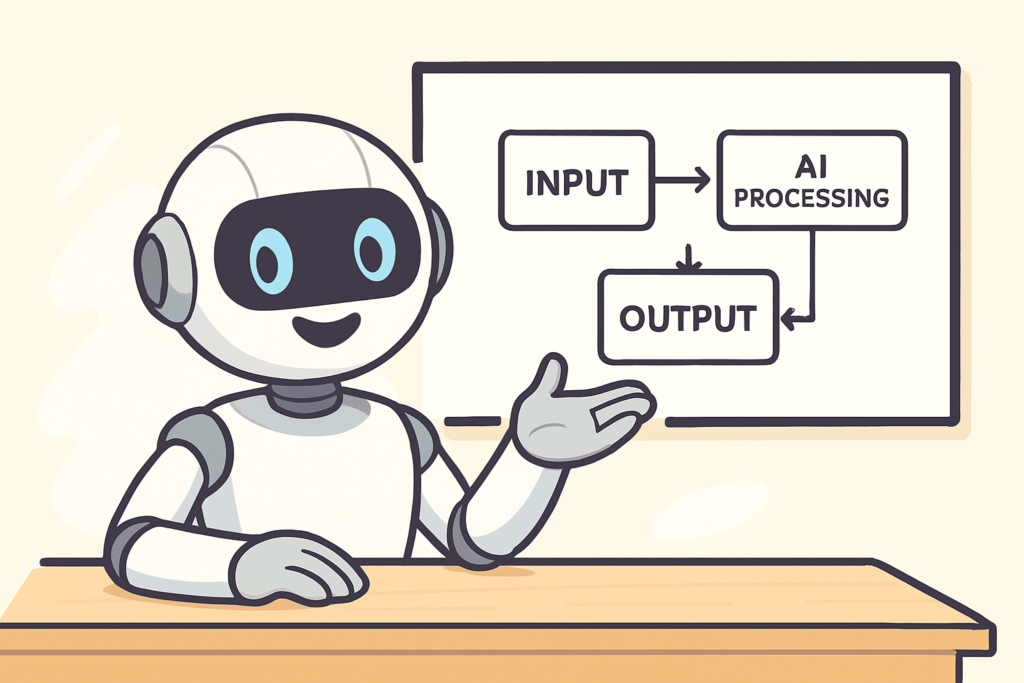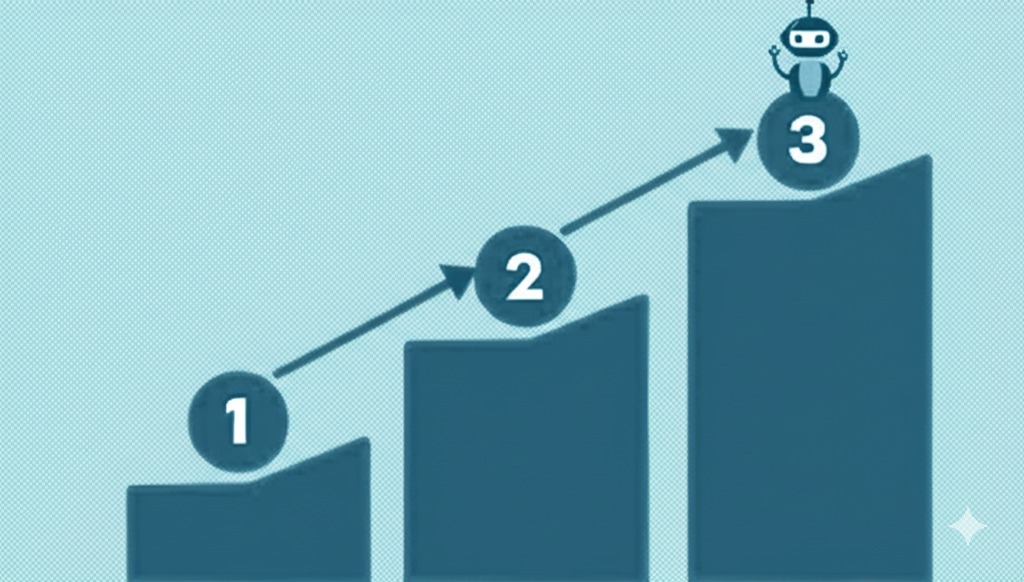What Are AI Agents? A Simple Explanation for Business Owners
You might be hearing buzz about “AI Agents,” “Auto-GPT,” or “AgentGPT.” These represent an exciting evolution beyond simple AI tools, aiming for more autonomous task completion. But what are they, and what could they mean for your business? Let’s break it down simply.
Beyond Single-Task AI:
Most AI tools we’ve discussed (like writers or image generators) perform specific, defined tasks based on your direct prompt. You ask, it answers or creates.
AI Agents Aim for Autonomy:
AI Agents are designed to take a larger goal you give them and then autonomously:
- Break Down the Goal: Figure out the necessary steps to achieve the goal.
- Execute Tasks: Perform those steps, potentially using various tools (like searching the web, writing code, accessing APIs).
- Self-Critique & Adapt: Evaluate their own progress and adjust their plan if they hit obstacles or find better approaches.
- Continue Until Goal Met (Ideally): Keep working iteratively until the objective is achieved.
Think of it like this:
- Standard AI Tool: You ask it to write a blog post outline. It gives you the outline. Task complete.
- AI Agent (Hypothetical): You give it the goal: “Research competitors for my coffee shop in downtown Anytown and write a summary report.” The agent might then:
- Task 1: Search Google Maps/Yelp for coffee shops in the area.
- Task 2: Visit competitor websites to gather info on menu, hours, vibe.
- Task 3: Search social media for recent customer comments about competitors.
- Task 4: Synthesize findings into a structured report.
- Task 5: Present the report to you.
Current State (Early 2025): Experimental but Evolving Fast
- Tools like Auto-GPT, AgentGPT, BabyAGI were early proofs of concept, often run locally by technical users. They showed the potential but often got stuck in loops or weren’t reliable for complex business tasks.
- Web-based platforms are emerging that try to make agent-like capabilities more accessible, allowing you to chain AI tasks together or set research goals.
- Integration into Existing Tools: We’re starting to see agent-like features appear within larger platforms (e.g., an AI assistant that can summarize emails and then draft replies based on your instructions).
Potential Future Business Use Cases (Still Developing):
- Automated Market Research: Performing competitor analysis or summarizing industry trends.
- Complex Content Creation: Researching and drafting detailed reports or articles.
- Workflow Automation: Handling multi-step processes involving different online tools.
- Personalized Customer Outreach (with care): Drafting tailored follow-up sequences based on customer interactions.
Key Limitations Right Now:
- Reliability: Can still be prone to errors, loops, or nonsensical actions (“hallucinations”).
- Cost: Running complex agent tasks can consume significant computing resources (API calls).
- Complexity: Setting up and guiding agents effectively still often requires technical understanding.
- Safety & Control: Ensuring agents act ethically and don’t perform unintended actions requires careful setup and oversight. (Privacy is a major consideration).
What Business Owners Should Do Now:
- Stay Informed: Keep an eye on developments in this space. Read articles (like this one!).
- Experiment Cautiously: If user-friendly platforms emerge, try them for non-critical tasks.
- Focus on Current Tools: Leverage the proven AI tools for writing, images, and automation that provide immediate value today.
AI Agents represent the next frontier, moving towards more autonomous AI assistance. While not yet a mainstream tool for most SMBs, their potential is enormous, and understanding the concept prepares you for future possibilities.

